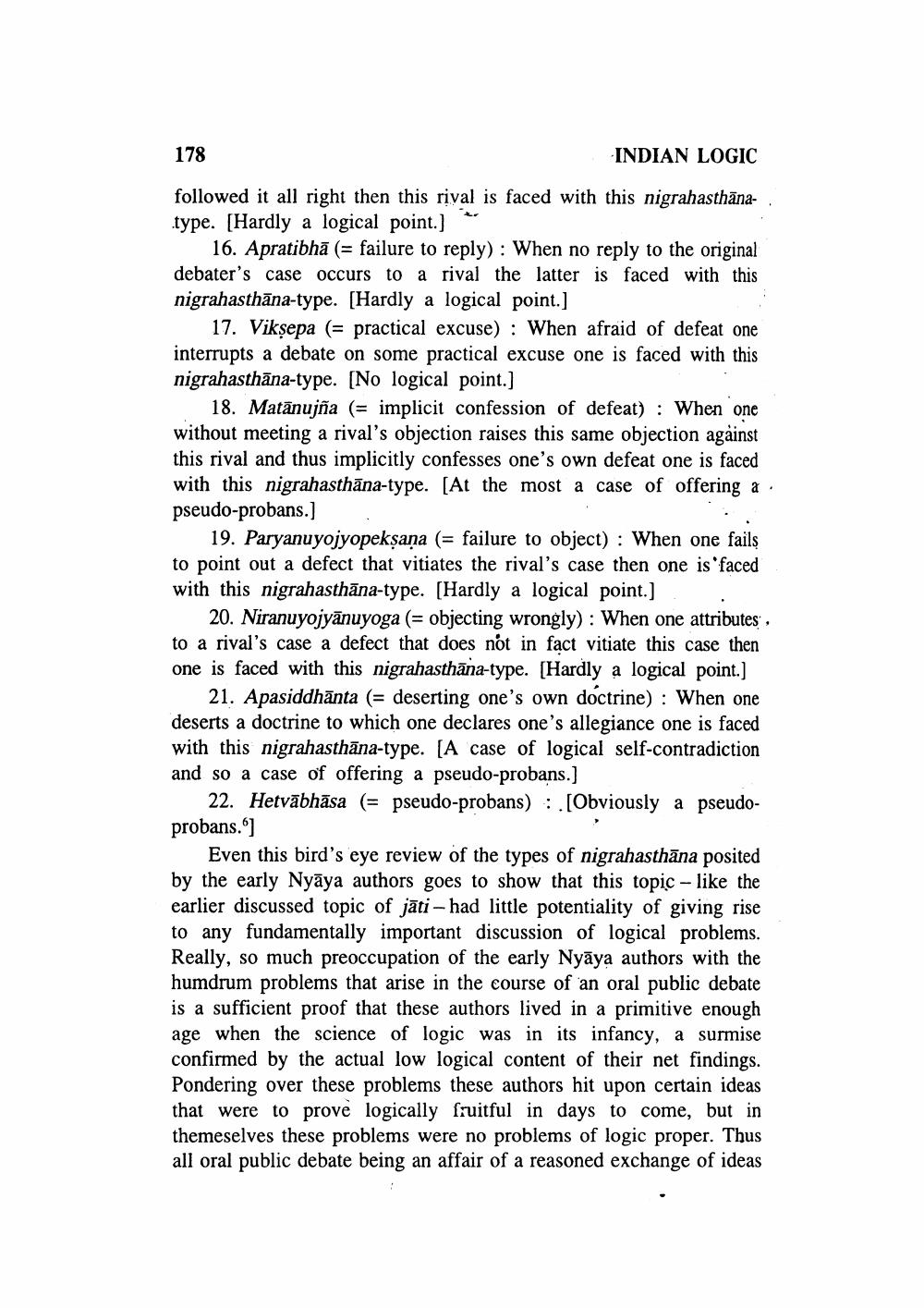________________
178
INDIAN LOGIC
followed it all right then this rival is faced with this nigrahasthanatype. [Hardly a logical point.)
16. Apratibha (= failure to reply): When no reply to the original debater's case occurs to a rival the latter is faced with this nigrahasthäna-type. [Hardly a logical point.]
17. Vikṣepa (= practical excuse): When afraid of defeat one interrupts a debate on some practical excuse one is faced with this nigrahasthäna-type. [No logical point.]
18. Matānujña (= implicit confession of defeat): When one without meeting a rival's objection raises this same objection against this rival and thus implicitly confesses one's own defeat one is faced with this nigrahasthäna-type. [At the most a case of offering a pseudo-probans.]
19. Paryanuyojyopekṣaṇa (= failure to object): When one fails to point out a defect that vitiates the rival's case then one is 'faced with this nigrahasthäna-type. [Hardly a logical point.]
20. Niranuyojyänuyoga (= objecting wrongly): When one attributes. to a rival's case a defect that does not in fact vitiate this case then one is faced with this nigrahasthäna-type. [Hardly a logical point.]
21. Apasiddhanta (= deserting one's own doctrine) When one deserts a doctrine to which one declares one's allegiance one is faced with this nigrahasthāna-type. [A case of logical self-contradiction and so a case of offering a pseudo-probans.]
22. Hetväbhasa (= pseudo-probans) [Obviously a pseudoprobans."]
Even this bird's eye review of the types of nigrahasthäna posited by the early Nyaya authors goes to show that this topic- like the earlier discussed topic of jäti-had little potentiality of giving rise to any fundamentally important discussion of logical problems. Really, so much preoccupation of the early Nyaya authors with the humdrum problems that arise in the course of an oral public debate is a sufficient proof that these authors lived in a primitive enough age when the science of logic was in its infancy, a surmise confirmed by the actual low logical content of their net findings. Pondering over these problems these authors hit upon certain ideas that were to prove logically fruitful in days to come, but in themeselves these problems were no problems of logic proper. Thus all oral public debate being an affair of a reasoned exchange of ideas




